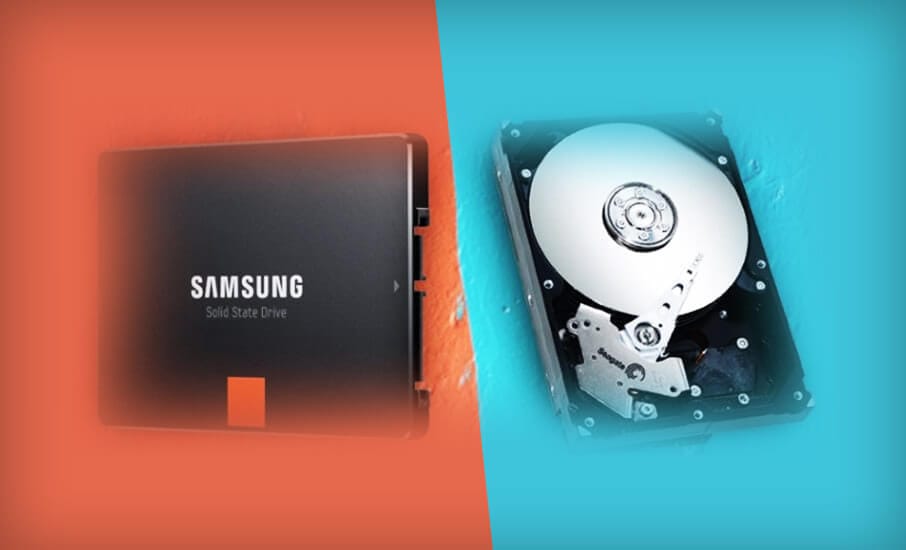At this point in time, everyone is pretty aware that all of their data is being stored on a device in or out of their computer called a hard drive. While everyone knows this, not everyone knows that this particular device could be inhibiting the performance of their computer. A hard drive can come in many different speeds and storage sizes, but at the end of the day it is only so safe and reliable. Countless times I’ve witnessed complete hard drive failures that results in the loss of irreplaceable data. Aside from the immense possibility of failure, hard drive speeds are also very limited, meaning every function on the computer itself will be limited as well. Luckily, there is a solution to the limitations of a traditional hard drive, known as an SSD (Solid-State Drive).
To get an idea of just how inhibiting it is to use an HDD as your primary means of system storage, we need to do a direct compare/contrast of traditional drives against an SSD.
A hard drive is composed of a few internal components ranging from a spindle to an actuator. All that is really essential to know if that all of the data written to a hard drive is stored on circular, metal disks known as platters. These platters spin at a very fast rate so that data is written and read as quickly as possible from them. Typically, the more money you spend on a hard drive, the faster it will spin, thereby increasing its performance. While 15,000 RPM (Revolutions per Minute) sounds like quite a bit, the drive is still inhibited by its design being of the strictly mechanical nature. Your computer performance is going to be restricted by how fast the drive spins, not to mention that in an entirely mechanical system, failure is imminent. Traditional hard drives are going to fail; this is the undeniable truth. So the question with an HDD isn’t “is it going to fail?”, it’s “when will it fail?”.
While hard drives are still being used regularly in business daily operations, more and more people are migrating over to the new standard, which are SSDs. In the same way that over time, many of the mechanical parts of a car have been turned into newer, better electronic parts, the newer technology of Solid-State Drives has started to become very prevalent. This is for good reason, seeing as how the performance of SSDs trumps that of HDDs indefinitely. Instead of having rotating platters where you rely on the rotational speed to determine how fast you will see your data, an SSD has no moving parts so data is read/written directly to flash memory. You can think of an SSD as being composed of small chips where your data is stored. How drastic is the performance difference? An SSD is 160% faster in Windows performance than your average HDD. SSDs are also 630% faster than your standard HDD in file transfer speeds. These are just a couple of the many statistical gains you achieve with the introduction of an SSD in your system. This technology will quite literally make your computer run better than it ever has before. Aside from the performance gains, SSDs are many times more reliable than traditional hard drives as well. With better performance and almost no chance of surprise failure, why wouldn’t you make the switch?
Of course, there are many other factors that can affect the performance of a system. But if there was ever something that could change your computer into something better and faster, it’s a Solid-State Drive.




